8 LGBT facts about Victorian England which will blow your mind
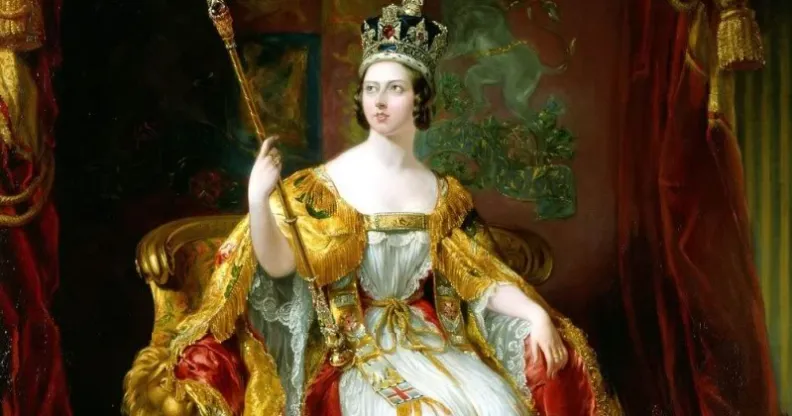
The Victorian era saw the death penalty for buggery abolished in 1861 – but it wasn’t exactly plain sailing for LGBT people after that.
Crossdressing men, drag balls and homosexual behaviour sparked Section 11 of 1885’s Criminal Law Amendment Act, which made “gross indecency” punishable in the UK.
Under the Act, both Oscar Wilde and Alan Turing were investigated, with the latter undergoing hormone therapy to avoid imprisonment.
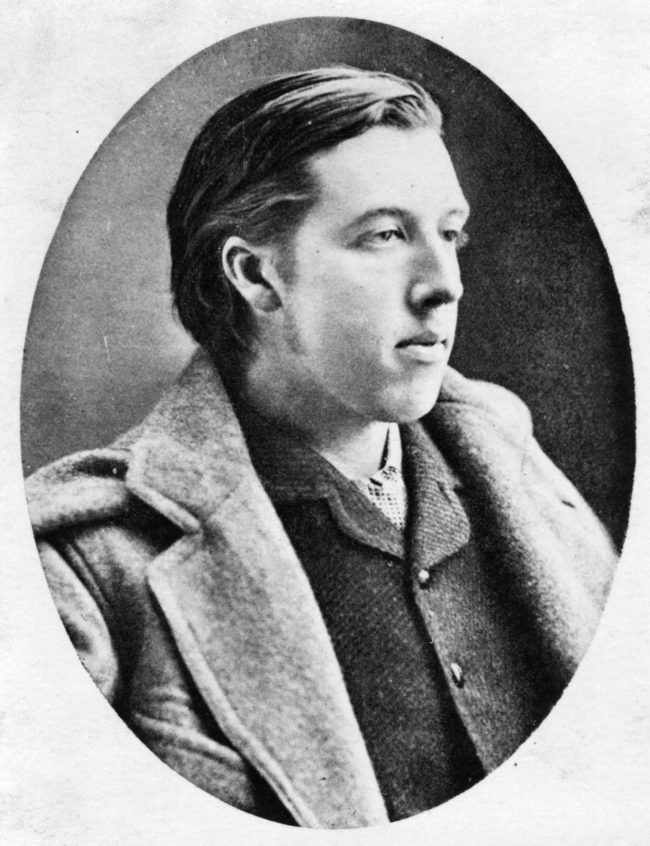
Despite the risks, there were still some LGBT people trying to change the culture.
Take a look at our brief LGBT history of Victorian England.
Stella Clinton and Fanny Winifred Park
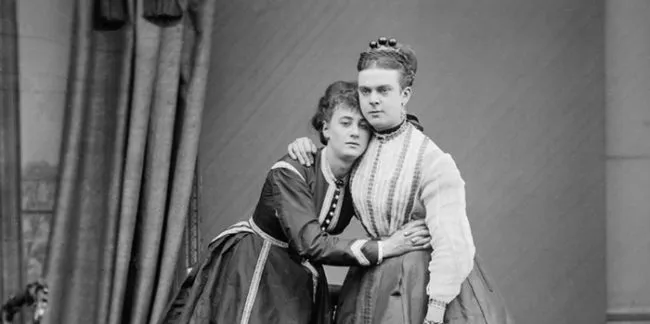
Also known as Fanny and Stella, Frederick William Park and Thomas Ernest Boulton met in London and formed a theatrical double act in which they dressed as women and toured under the names Stella Clinton and Fanny Winifred Park.
The pair carried their alter egos offstage too, and often frequented London’s West End in their gowns.
Also part of their crew, despite not being a crossdresser, was Lord Arthur Clinton – a naval officer and the son of the 5th Duke of Newcastle.
Clinton had lived with Boulton and exchanged love letters with his alter ego Stella.
The arrest of Boulton and Park
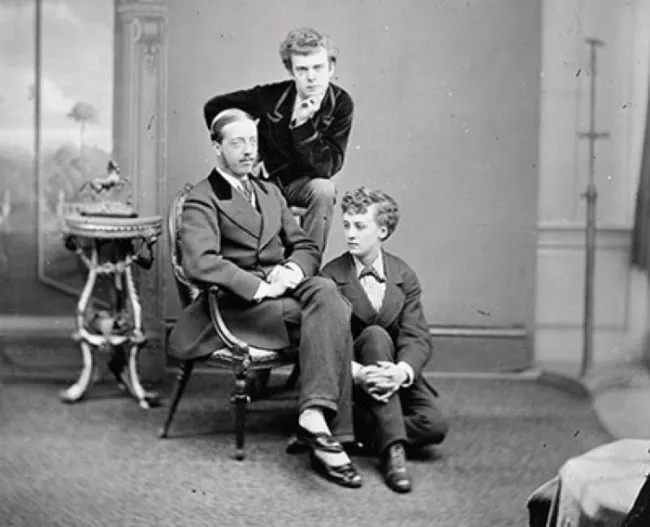
(Boulton and Park pictured with Lord Arthur Clinton)
On the evening of April 28, 1870, Boulton and Park were spotted by a police detective as they left a house near Regent Square.
The detective followed them to the Strand Theatre, where they entered a private box along with two more men.
A police superintendent and a police sergeant joined the detective during the performance, before arresting Boulton and Park as they tried to leave the theatre.
Shockingly, the men were subjected to examinations by a police doctor in order to establish if they had had anal sex. They were brought before the magistrate at Bow Magistrates Court the following day.
The indictment was against Boulton, Park, Lord Arthur Clinton – who died before it went to trial, possibly by suicide – Louis Hurt, John Fiske, Martin Cumming, William Sommerville and C.H. Thompson.
When the case reached court, the physical examinations by police were found unreliable and the prosecution was unable to prove that they had committed any homosexual offence.
The prosecution also failed to prove that the wearing of women’s clothing by men was an offence, and the jury found Boulton and Park not guilty.
A big and “improper” Victorian drag ball
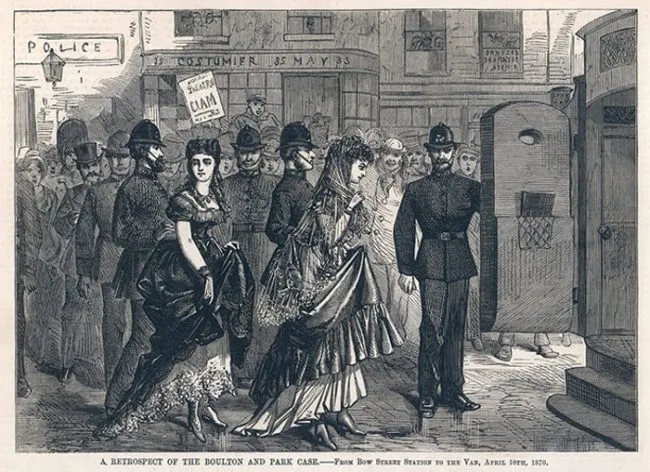
Way back in 1880, on September 24, the Manchester City Police received information that a fancy dress ball (wink wink) was being held that night at the Temperance Hall in York Street, Hulme.
The organisers behind the event took precautions to protect the guests’ identities.
There was a bouncer at the door dressed as a nun, black paper on the windows, and a blind accordion player.
Detective Jerome Caminada – who is believed to be the inspiration behind Sherlock Holmes – reportedly observed “men dressed in the most fantastic fashion, and eight of them in the garb of women”.
The police raided the party in the early hours of the morning, and the men were later charged with soliciting and inciting each other to commit “improper actions”.
The following week, newspapers including the London Evening Standard printed all 47 of the men’s names, though the same day, most of the men were granted bail.
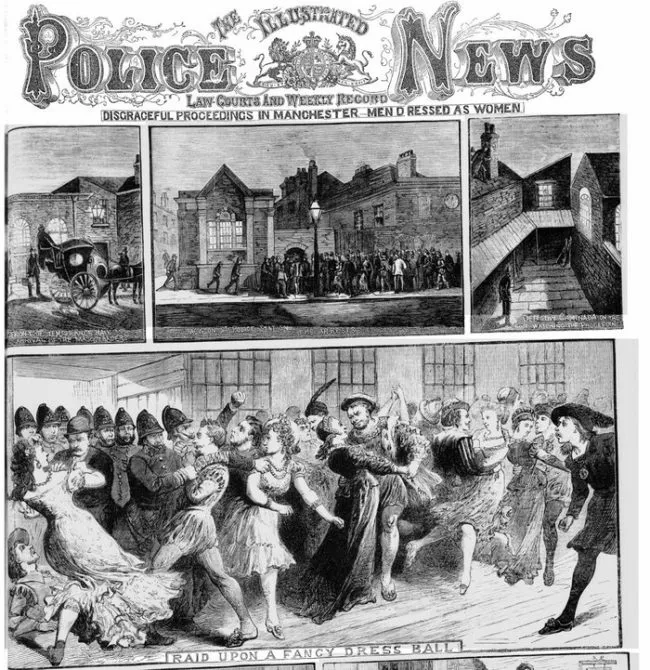
When they were released, the Huddersfield Daily Chronicle stated that “an extraordinarily large crowd besieged the Manchester City Police Court”.
In the end, most of the defendants were forced to pay a bond in the form of a promise to the court that they would carry out 12 months of “good behaviour”.
The UK passes the Criminal Law Amendment Act of 1885
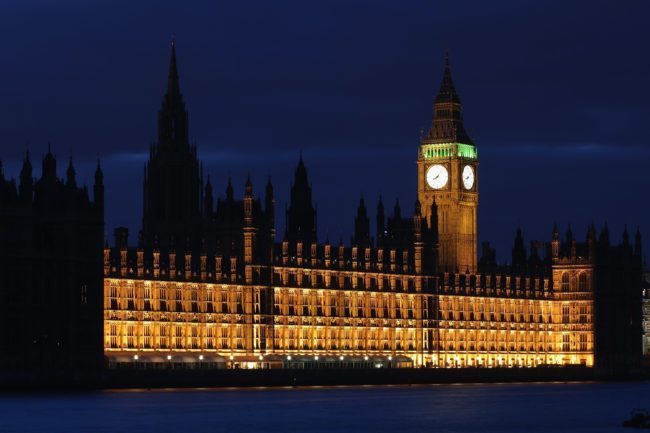
After all of the shocking aforementioned scandals, the UK finally passed an act to make “gross indecency” – whatever that means – punishable by prison time.
Commonly known as the Labouchere Amendment, named after member of Parliament Henry Labouchère, section 11 of the Criminal Law Amendment Act 1885 made “gross indecency” a crime in the UK.
The law was used broadly to prosecute male homosexuals where actual ‘sodomy’ could not be proven.
The Cleveland Street Scandal
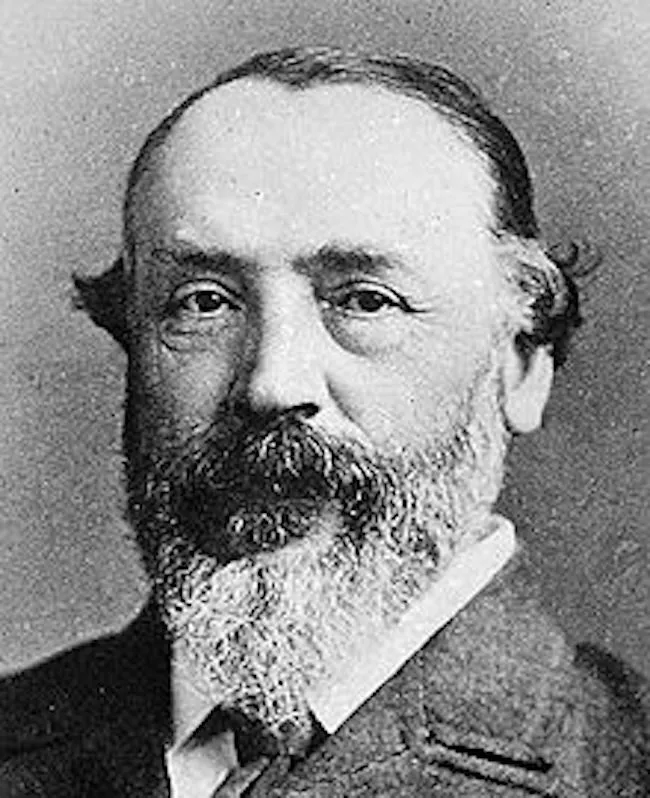
Henry Labouchere
Following the Labouchere Amendment, a gay male brothel in Cleveland Street, Fitzrovia, London was raided by police after they discovered telegram delivery boys were there as sex workers.
Several aristocratic clients were discovered, including Lord Arthur Somerset, equerry to the Prince of Wales, who narrowly avoided being charged under Section 11.
The Prince of Wales’ son Prince Albert Victor was also implicated in the scandal.
Oscar Wilde is accused of being grossly indecent
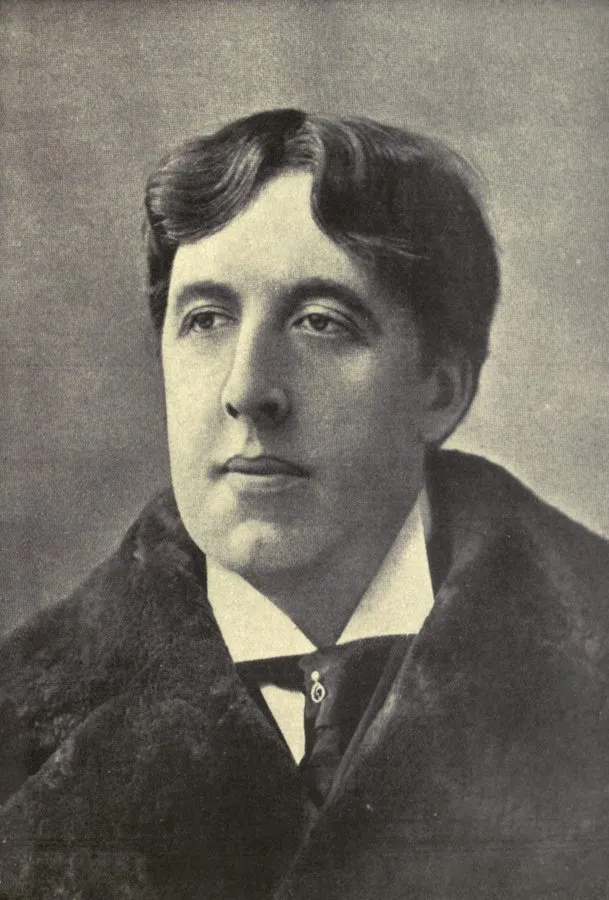
In 1895, Oscar Wilde was tried for gross indecency over his relationship with Lord Alfred Douglas.
Wilde was given the most severe sentence possible under the Act, which was described by the judge as “totally inadequate for a case such as this”.
Accused of having sex with over 12 young men between 1892 and 1894, Wilde was eventually sentenced to two years in prison with hard labour.
Alan Turing is also accused of being grossly indecent

Mathematician and early computer scientist Alan Turing was also investigated for alleged violations of the Labouchere Amendment.
Police discovered a male lover at his house after Turing reported a petty theft.
He opted to undergo hormone therapy instead of being imprisoned. Turing was pardoned posthumously by Queen Elizabeth II in 2013.
The first homosexual rights group in England
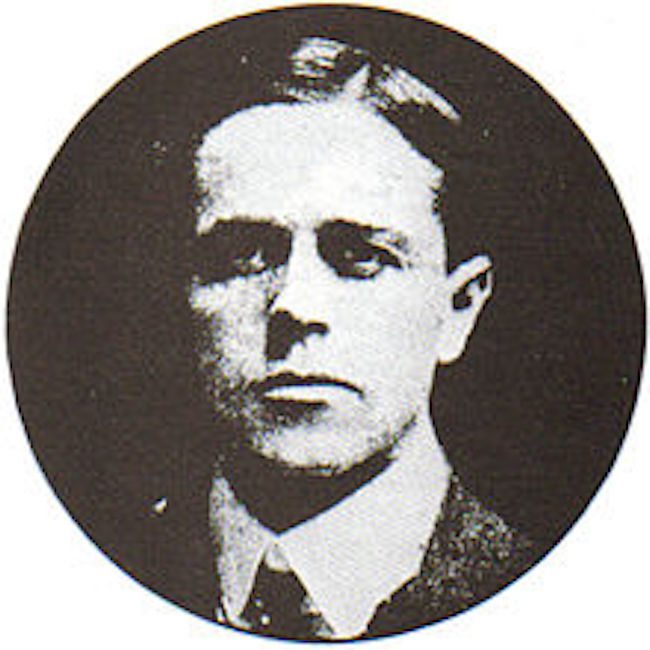
George Cecil Ives
Sex between two consenting British men wasn’t decriminalised until 1967. However, 1897 saw George Cecil Ives organise the first homosexual rights group in England – the Order of Chaeronea.
The Order of Chaeronea was a secret society which came about because Ives believed that homosexuals would not be accepted openly and would need a way of communicating.
The society was named after the battle where the male lovers of the Theban Band were slaughtered in 338 BC.
All images credited Creative Commons.

